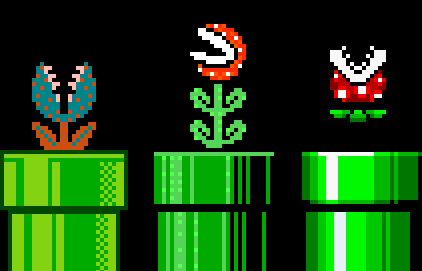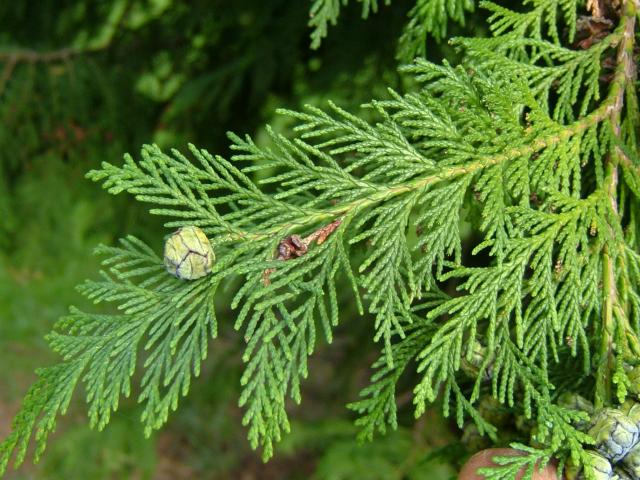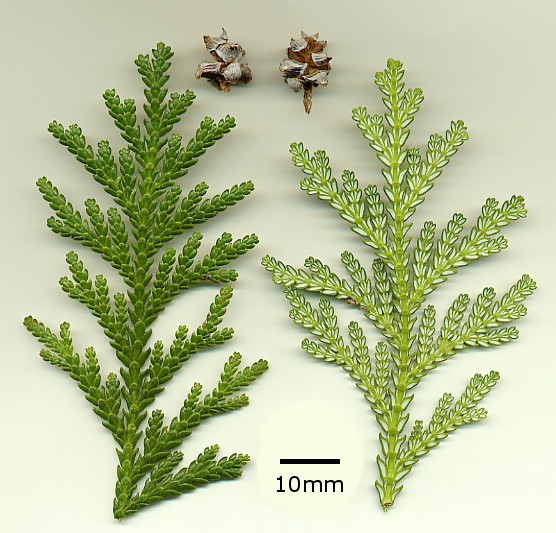Common Name: Leyland cypress
Family: Cupressaceae
Origin: Garden origin
Tree/Shrub/Herb: Coniferous tree
Leaves: Bulbous ends, chunky outline
Cultural Requirements: Well drained, acidic soil, full sun
Latin Name: Chamaecyparis lawsoniana
Common Name: Lawson cypress
Family: Cupressaceae
Origin: Oregon and California
Tree/Shrub/Herb: Coniferous tree
Leaves: Thin and sharp, much like C. arizonica but flatter
Cultural Requirements: Well drained, acidic soil, full sun
Latin Name: Chamaecyparis nootkatensis
Common Name: yellow cypress
Family: Cupressaceae
Origin: Western North America
Tree/Shrub/Herb: Coniferous tree
Leaves: Branches which branch inwards to the centre of the spray
Cultural Requirements: Well drained, acidic soil, full sun
Latin Name: Chamaecyparis pisifera
Common Name: sawara cypress
Family: Cupressaceae
Origin: Japan
Tree/Shrub/Herb: Coniferous tree
Leaves: Needle-y with a claw-like bent form
Cultural Requirements: Drought tolerant, intolerant of wet soil
Latin Name: Chamaecyparis pisifera 'Filifera'
Common Name: Filifera cypress
Family: Cupressaceae
Origin: Garden origin
Tree/Shrub/Herb: Coniferous tree
Form: Tiers of arched trusses
Leaves:Thin leaves, almost juniper-like
Cultural Requirements: Well drained, acidic soil, full sun
Latin Name: Chamaecyparis obtusa ' Nana Gracilis'
Common Name: Gracilis cypress
Family: Cupressaceae
Origin: Garden origin
Tree/Shrub/Herb: Coniferous tree
Form: Mounded, dense
Leaves: Dense, vertically rising, flat sprays
Cultural Requirements: Needs moisture, full sun
Latin Name: Cupressus arizonica
Common Name: Arizona cypress
Family: Cupressaceae
Origin: SW North America
Tree/Shrub/Herb: Coniferous tree
Form: Upright
Habit: Upward sweeping primary branches
Leaves: Scaly, multi-ranked leaves
Cones: Roundish/boxy female cones, male pollen flowers
Stem/Bark: Platy greyish-brown bark
Cultural Requirements: Dry, inorganic soil, full sun
Landscape Uses: Large garden tree, park trees
Notes: Doesn't always perform very well in our climate
Latin Name: Thuja plicata
Common Name: western red cedar
Family: Cupressaceae
Origin: Western North America
Tree/Shrub/Herb: Coniferous tree
Form: Upright, single dominant leader
Habit: Upward sweeping branches
Leaves: Flattened, scaly, multi-ranked leaves, 'butterflies' on underside
Cones: Very small brown cones in clusters
Stem/Bark: Reddish bark that peels in long vertical strips
Cultural Requirements: Moist soils are necessary
Landscape Uses: Park trees, hedging
Notes: The trunks flare at the base
Latin Name: Thuja occidentalis
Common Name: arborvitae
Family: Cupressaceae
Origin: Eastern North America
Tree/Shrub/Herb: Coniferous tree
Leaves: Shaped much like T. plicata but with a flat white underside
Cultural Requirements: Well drained, acidic soil, full sun
Latin Name: Thujopsis dolabrata
Common Name: thujopsis
Family: Cupressaceae
Origin: Japan
Tree/Shrub/Herb: Coniferous tree
Leaves: Wide, thick scales with prominent, large white lenticels underneath
Cultural Requirements: Irrigation dependent, full sun
Latin Name: Calocedrus decurrens
Common Name: incense cedar
Family: Cupressaceae
Origin: Western US + Mexico
Tree/Shrub/Herb: Coniferous tree
Leaves: Pale bluish tint with long, sharp scales
Cultural Requirements: Dry soil, not too rich, full sun











No comments:
Post a Comment